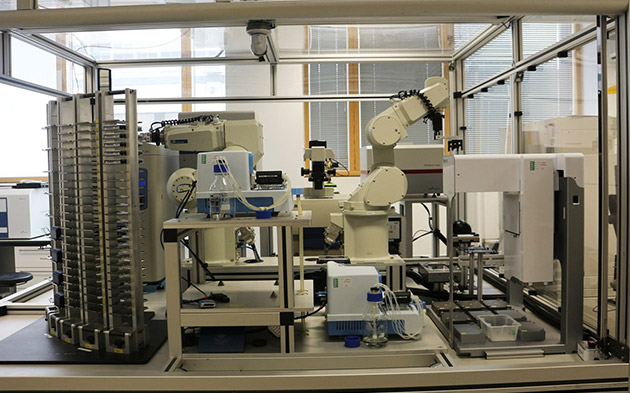Robot scientist Eve has found a new cure for malaria
Researchers at Cambridge and Manchester Universities have proven the ability of robot scientist Eve to find a cure for malaria . To do this, Eve scanned ten thousand combinations of substances every day and tested them on genetically modified yeast to check toxicity to human cells. As conceived by its creators, Eve will make the process of finding drugs faster and cheaper.

Artificial intelligence allows Eve to learn. She chooses compounds that are active in relation to the goal - in this case, they were plasmodia, unicellular parasites, pathogens of malaria. The drug must meet another important requirement: it must not harm a person. The absence of toxicity is tested on genetically modified yeast.
Eve herself selects from a library in which about fifteen thousand compounds are suitable, and sets up experiments up to ten thousand times a day. She checks several substances several times to make sure that they are useless.
Eva uses active learning to select drugs — one of the ways machine learning is. The algorithm independently assigns the next situation to be studied. This approach will minimize the consumption of the test material, that is, save the drug manufacturer.
Ten years pass from the beginning of drug development to its entry into the market, with an average cost of about a billion dollars. And diseases that take millions of lives adapt to drugs. Therefore, it is so important to automate the search process and make it more effective.
Eve at work

Artificial intelligence allows Eve to learn. She chooses compounds that are active in relation to the goal - in this case, they were plasmodia, unicellular parasites, pathogens of malaria. The drug must meet another important requirement: it must not harm a person. The absence of toxicity is tested on genetically modified yeast.
Eve herself selects from a library in which about fifteen thousand compounds are suitable, and sets up experiments up to ten thousand times a day. She checks several substances several times to make sure that they are useless.
Eva uses active learning to select drugs — one of the ways machine learning is. The algorithm independently assigns the next situation to be studied. This approach will minimize the consumption of the test material, that is, save the drug manufacturer.
Ten years pass from the beginning of drug development to its entry into the market, with an average cost of about a billion dollars. And diseases that take millions of lives adapt to drugs. Therefore, it is so important to automate the search process and make it more effective.
Eve at work
